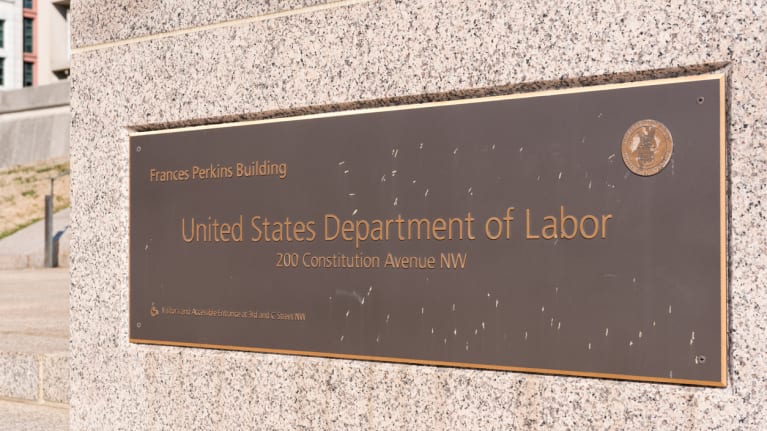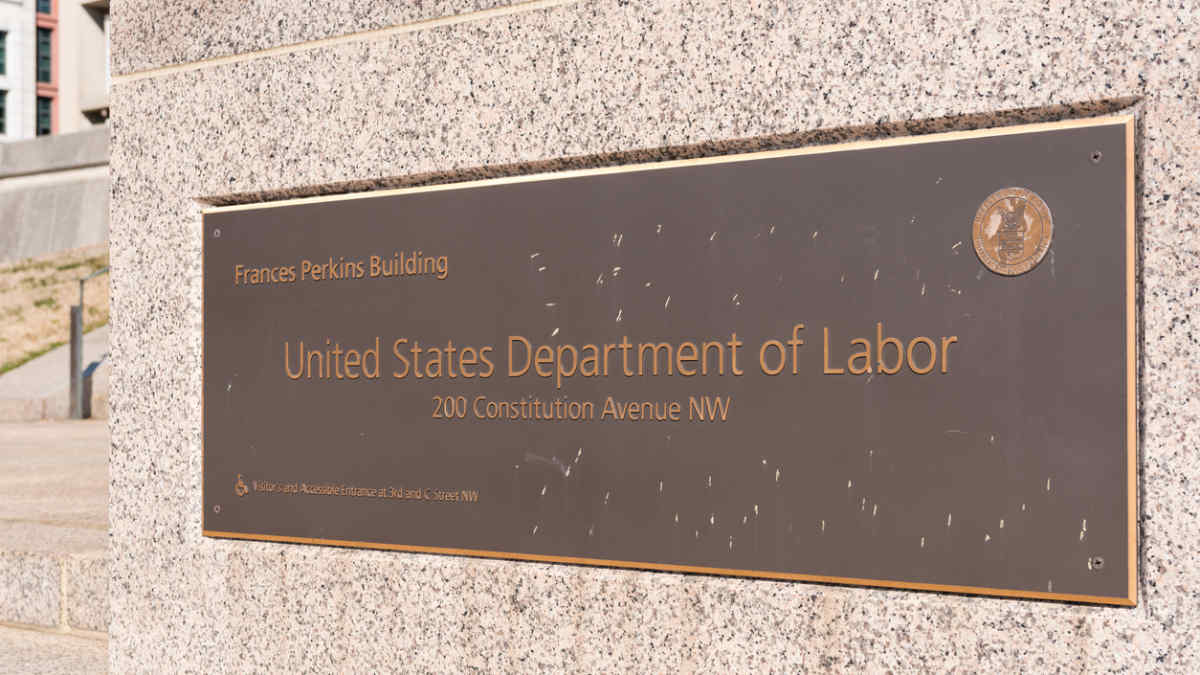

The U.S. Department of Labor (DOL) announced a final rule July 27 requiring federal contractors that use persuaders—consultants or attorneys who inform employees about all the possible effects of unionization as part of union avoidance—to publicly identify themselves as doing so by checking a new box on the LM-10 form. Employers must file the form to disclose certain specified financial dealings, including the use of persuaders.
The rule, which was published in the Federal Register on July 28, could lead to fewer contractors using persuaders if they believe doing so will impact their ability to get a government contract, said Jonathan Keselenko, an attorney with Foley Hoag in Boston. The revision takes effect Aug. 28.
“The final revision explains that the transparency created by the revision would better inform workers in making determinations regarding the exercise of their rights to organize and bargain collectively,” the DOL said in a news release. The department makes all reports submitted to it publicly available.
“[W]ith the knowledge that the source of the information received is an anti-union campaign managed by an outsider, workers will be better able to assess the merits of the arguments directed at them and make an informed choice about how to exercise their rights,” the DOL added in the rule’s supplementary information.
Contractors will likely be concerned that the rule will effectively hinder free speech. “Given the contractor’s dependency on the federal government, the company will worry that if a persuader is retained and reported, they may be under additional scrutiny, which, of course, is exactly the point of the rule,” said Michael Lotito, an attorney with Littler in San Francisco.
Reason for Changes
The DOL said it added the checkbox to the form in response to the increased prevalence of persuader activities in recent years.
Other revisions include two new lines on the form to enter contractors’ unique entity identifier and federal contracting agency or agencies. “In all other respects, the form remains unchanged,” said Steven Bernstein, an attorney with Fisher Phillips in Tampa, Fla. The unique entity identifier is the official identifier for doing business with the U.S. government.
The rule adds another certification checkpoint to assist the Office of Federal Contract Compliance Programs in identifying federal contractors, said Cheryl Behymer, an attorney with Fisher Phillips in Columbia, S.C.
It comes as “employer efforts to defeat unions have become more prevalent, with more employers turning to union avoidance consultants,” according to the DOL, citing a Senate hearing on whether taxpayer dollars should go to companies that violate labor laws. As union avoidance activity increases, the DOL said it is well within its role to increase the quality and utility of the information being disclosed about such activity.
Even though persuader activity is lawful, Congress has found that most of this kind of activity is “disruptive of harmonious labor relations,” the DOL added. Federal contractors may not receive reimbursement for the costs of engaging in persuader activities.
‘Chilling Effect on Employers’
“The only explanation for this rule is to make it easier for contractors to face negative PR for engaging a persuader during a campaign, in spite of the fact that this is lawful speech protected by both Section 8(c) [of the National Labor Relations Act] and the First Amendment. It is certainly designed to chill protected speech,” said Phil Wilson, president and general counsel with the Labor Relations Institute, a labor and employee relations consulting firm in Broken Arrow, Okla.
The DOL stated in the rule’s supplementary information: “By learning of the federal contractor status of their employer, those employees would have convenient access to the information that would allow them to meaningfully exercise their organizing and collective bargaining rights, such as their First Amendment right to choose whether to contact their representatives in Congress to inquire about the federal appropriations underlying the contracts with their employers, or the employers’ activities undertaken pursuant to such contracts, or allow the employees to work more effectively with advocacy groups or the media to disseminate their views as employees to a wider audience.”
Jim Plunkett, an attorney with Ogletree Deakins in Washington, D.C., said, “Reading between the lines, this passage argues that it is important for employers engaging in persuader activities to identify as federal contractors so employees can 1) encourage Congress to implement some form of a federal contractor blacklisting scheme; and 2) more easily launch public media campaigns against contractors. This is likely to have a chilling effect on employers who wish to communicate with employees about unionization.”
In contrast, Keselenko didn’t think the requirement was burdensome, but he noted it would allow procurement officers to see whether contractor candidates are using persuaders to try to avoid unionization.
Ultimately, the final rule likely will give employers pause, said David Pryzbylski, an attorney with Barnes & Thornburg in Indianapolis.
That’s partly because the DOL will be making this information—whether a federal contractor is engaging or has engaged in persuader activity—more accessible to employees and organized labor. “Such a disclosure is not likely to lead to an immediate chilling effect or substantial disruptions in the near term, but [it] is part of a calculated attempt to provide this information to employees and unions, that will in turn provide information for their own campaigns,” Pryzbylski said. For example, a union could learn that a company spent thousands of dollars on persuading services and then inform employees in a campaign of that fact to sow distrust with the employer.
Likewise, this information may result in organized labor ratcheting up pressure on employers to abandon these practices and on the federal government to refuse to do business with any contractor that engages in persuader activity, Pryzbylski noted.
“The bottom line here is that companies who are contractors with the federal government should be cognizant of the fact that their use of persuaders in labor relations matters will be receiving more scrutiny and could potentially impact the award of contracts in the future,” he said.
